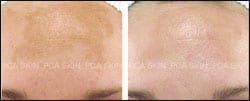By Michael Rose, MD, FACS
A new cosmetic psychological screening tool is slated to be unveiled at an international conference on July 3-4, 2012 in the United Kingdom. Researchers at the Centre for Appearance Research (CAR) at the University of the West of England in Bristol argue that there is an urgent need to pre-screen all cosmetic surgery patients prior to surgery to assess their expectations.
Those involved feel that the screening is necessary based on their experience, and since, as they claim, little is known about the impact that aesthetic surgery has on patients’ psychosocial functioning, adjustment and appearance satisfaction in the long term.
However, part of the training that we undertake during accredited plastic surgery training focuses on how to evaluate a patient from a physical and medical point of view, and a psychological one as well. This training is missing from many non-board certified practitioners, and underscores the point, yet again, that accreditation matters when selecting a plastic surgeon.
It is not only for obvious medical reasons that the consumer should be wary of the lack of training and certification seen at discount medical facilities (whether in the US or abroad), but there are also psychological considerations.
My wife (a psychiatrist) says I often do more for my patients’ well being in an afternoon of surgery than she does in months of therapy. So, conversely, imagine how much psychological damage can also be done. Distorted and unrealistic expectations and attitudes regarding cosmetic surgery abound, and we know through studies that poor outcomes result for those with unrealistic expectations or a history of anxiety or depression.
We don’t necessarily need a universal screening tool. We need to make sure that board—certified plastic surgeons are the ones tasked with evaluating prospective patients and performing their surgeries. The additional training in how to identify and address psychological issues are as important to as surgical skill.
Michael Rose, M.D., FACS practices at The Plastic Surgery Center and The Institute for Advanced Reconstruction in Shrewsbury, New Jersey. He is married to a psychiatrist.


